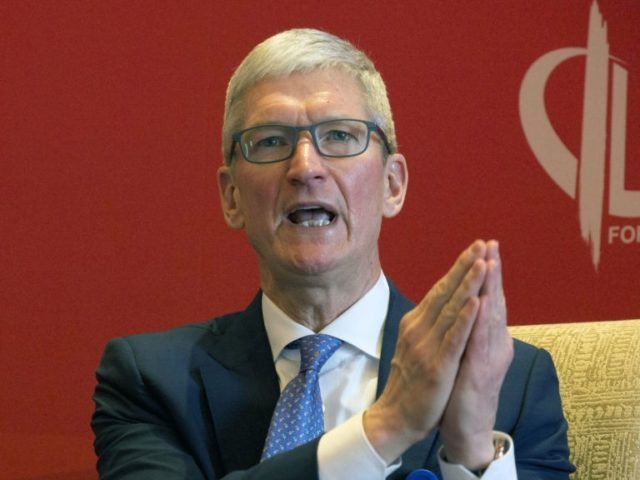As the Trump administration tussles with Apple over access to the Pensacola terrorist’s iPhones, a new report states that federal law enforcement officials have plenty of third-party options at their disposal to break into the devices, which would avoid a showdown between Apple and the government.
But since Saudi citizen Mohammed Saeed Alshamrani also attempted to destroy his devices by shooting and smashing them, the government could be facing what one expert in the report called a “bullet” problem that would complicate the situation.
Wired reported Thursday that hacking technology has advanced to a level where the government could hire an outside firm to open the shooter’s iPhone 5 and an iPhone 7 Plus.
“If they can boot up the phone then existing tools will work,” Dan Guido, CEO of Trail of Bits, a company that consults on iOS security, told the magazine. “I’m not sure how the state of the hardware may complicate matters, because there’s no detailed information about that. Even then, I’m sure forensics firms receive broken phones all the time.”
Alshamrani shot and killed three people and wounded eight others during a terrorist attack in December at a Pensacola, Florida, Naval Air Station base. The 21-year-old Saudi citizen was a second lieutenant in the Royal Saudi Air Force, and was reportedly in Pensacola for aviation training.
Since the terror attack, investigators have sought access to the killer’s mobile devices. While Apple has reportedly turned over iCloud data and other information, the company has declined requests from Attorney General William Barr and the FBI to unlock the two iPhones.
On Tuesday, President Donald Trump tweeted and then retweeted his frustration with Apple, telling the company that it needs to “step up to the plate and help our great Country.”
Wired reported that the FBI didn’t return a request for comment about why it can’t find a third-party solution and must turn to Apple in this case.
“As far as we know, law enforcement has a number of workable options for unlocking phones, particularly older phones like these,” Johns Hopkins cryptographer Matthew Green told the magazine.
“It’s not clear to me why those tools wouldn’t work against these phones, but it’s possible that it’s related to the deliberately inflicted physical damage. If that’s the case, then it seems that the FBI doesn’t have an Apple problem, it has a bullet problem.”
Apple CEO Tim Cook has taken a hardline stance on digital privacy, claiming that privacy is one the company’s core values.
The tech giant previously squared off with law enforcement in 2016 over access to the San Bernardino shooter’s iPhone. In that case, Apple fought the government until a third-party company provided a solution to break into the shooter’s device.
The ACLU told Wired that the government could be pursuing a political strategy aimed at strengthening its ability to surveil consumers.
“It seems clear they are more interested in the authority than they are in the data on the phone,” Ben Wizner, director of the American Civil Liberties Union’s Speech, Privacy, and Technology Project, told the magazine.
Follow David Ng on Twitter @HeyItsDavidNg. Have a tip? Contact me at dng@breitbart.com

COMMENTS
Please let us know if you're having issues with commenting.